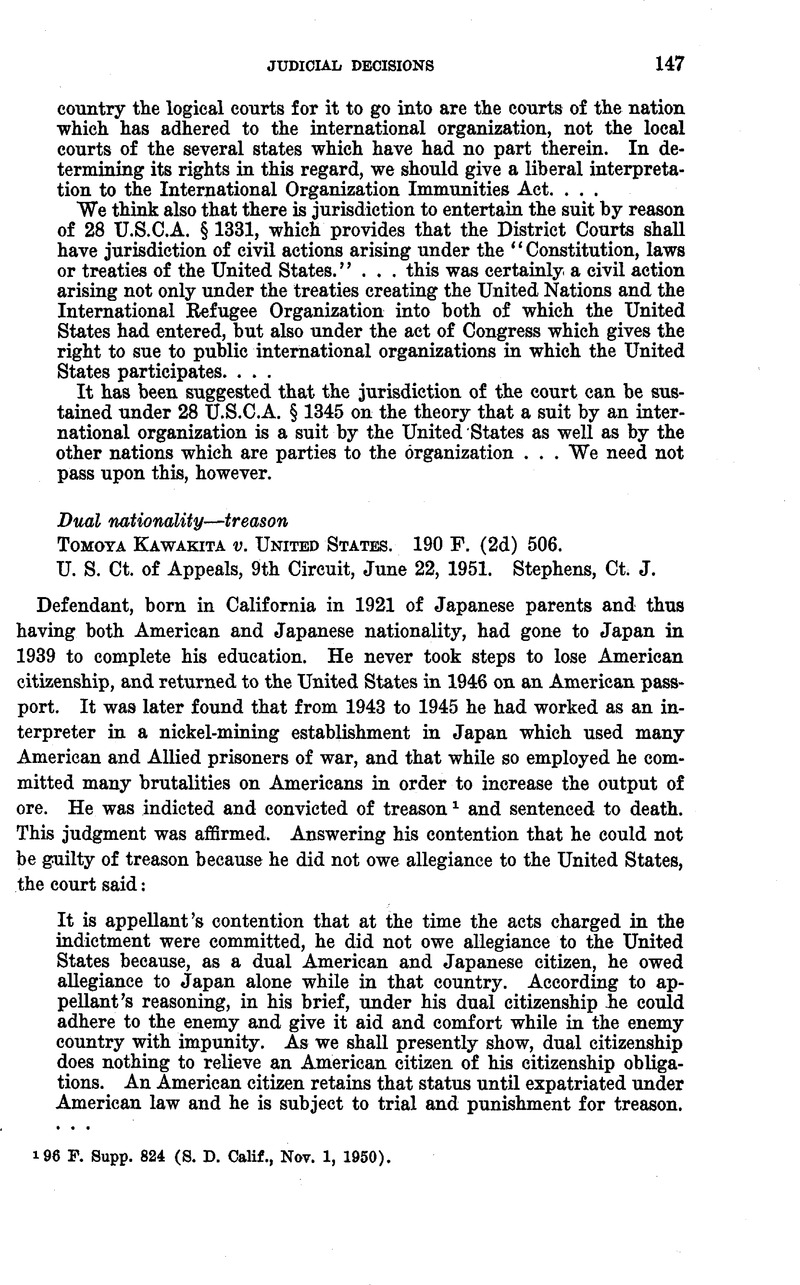No CrossRef data available.
Published online by Cambridge University Press: 20 April 2017

1 96 F. Supp. 824 (S. D. Calif., Nov. 1, 1950).
2 Cating Gillars v. U. S., 182 F. (2d) 962 (Dist. Col., 1950); this JOURNAL, Vol. 45 (1951), p. 372.
3 On this point the court said: “Much is made of the fact that this treatment was administered as punishment for the infraction of camp rules, namely, for extracting needed food from Red Cross packages sent for but withheld from him [a prisoner-of-war] in a storehouse. It is true that the convention relating to prisoners of war signed at Geneva, July 27, 1929, provides that prisoners of war shall be subject to the laws, regulations, and orders in force in the armies of the detaining power … Article 45. The same agreement provides, however, that punishments other than those provided for the same acts for soldiers of the national armies may not be imposed. Any corporal punishment, any form of cruelty, is forbidden. … Article 46.”
4 See also Burgmann v. U. 8., 188 F. (2d) 637 (Ct. App., Dist. Col., Feb. 8, 1951), affirming conviction for treason of American citizen who broadcast for the German Government in Germany during the war.